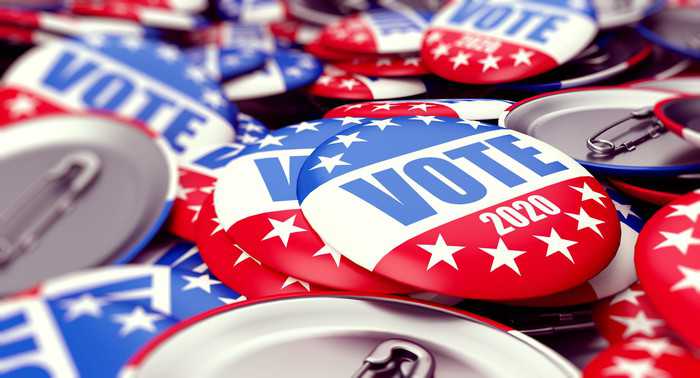1 Reason 2020 Will Be a Big Year for Google and Facebook

Image collected
Facebook (NASDAQ:FB) and Google, the Alphabet (NASDAQ:GOOG) (NASDAQ:GOOGL) subsidiary, are the kings of digital advertising. The two combined control over 50% of digital ad spending in the United States, and they're holding tight to that market share despite strong competition.
Revenue growth for the two tech giants could remain strong in 2020 thanks to an influx of political advertising spending. While the topic has been extremely controversial, there's a consensus that digital political advertising will see considerable growth compared to 2018 and 2016.
Both Google and Facebook are poised to capitalize thanks to their extremely broad user bases across Google, YouTube, Facebook, and Instagram. Meanwhile, some smaller competitors have said they won't allow political advertising at all.
Here's how political ads could have a considerable impact on Google and Facebook's top-line growth in 2020.
A banner year for digital political banners
Multiple estimates for 2020 U.S. political ad spending across local, state, and federal elections peg the number between $6 billion and $10 billion total. That compares to about $4 billion political campaigns spent on advertising in 2018. As you might expect, digital ad spend is projected to grow faster than television, print, and radio.
In other words, investors can expect digital political ad spending to grow more than 50% compared to 2018 and produce a rush of deep-pocketed ad buyers to platforms like Google and Facebook.
Facebook and Google's YouTube are prime candidates for political ad spending. Both reach extremely broad audiences. Roughly 73% of American adults use YouTube and 69% use Facebook, according to a survey from Pew Research. The next-closest social media platform not owned by either company is Pinterest, reaching 28% of Americans.
Google and Facebook's broad audiences are an advantage because they give political campaigns a greater chance of reaching voters that are most likely to be influenced by advertisements. Campaigns can use their own internal data combined with data from Google or Facebook to target advertisements based on various criteria, although Google took steps to prevent certain targeting options for political ads. Those targeting criteria work best when put against large user bases, which only Google and Facebook can provide.
But isn't political ad spending just a small fraction of total ad spend?
The amount spent on political ads on Google or Facebook isn't, in itself, going to move the needle very much for either digital advertising behemoth. Google brought in nearly $100 billion in ad revenue through the first nine months of 2019. Facebook generated nearly $50 billion. Digital political ad spending will total just $1 billion to $2 billion for all of 2020.
But the influx of ad buyers and ad dollars flowing into Facebook and YouTube will have a wide-reaching impact on their entire ad sales operations. Both Facebook and Google sell ads based on an auction format. The more money being spent in the auction, the higher the average ad price.
As such, the presence of political ad campaigns will force existing advertisers on those platforms to spend more for the same amount of impressions. And, it's very likely those marketers will pay up for those ads because Facebook and YouTube still offer excellent returns on ad spend.
Additionally, Facebook's feed algorithm is designed to balance organic sharing with advertisements in order to maximize revenue over time. An ad with a higher bid will get higher priority over organic posts in the feed. As such, the influx of political advertising could enable Facebook to grow ad revenue through both higher average ad prices and an increase in ad load. (Facebook may decide to adjust the algorithm to keep ad load stable, though, especially considering the backlash it's facing regarding political ads.)
With competitors bowing out of the running for political advertising dollars in 2020 and a massive influx of ad dollars and bidders into the Google and Facebook ecosystems, the two tech companies are poised to see strong growth in ad revenue stemming from political ads.
Source: https://www.fool.com
Previous Story
- Startups engaging consumers via users interactive app
- Facebook can be effective tool for branding
- What to expect from Facebook in 2020
- Facebook Is on a Billion-Dollar VR/AR Buying Spree
- Instagram increases focus on child safety online, rolls...
- Ordered by Singapore, Facebook Posts a Correction
- Singapore tells Facebook to correct user's post in...
- Instagram investigates yet another stalking app